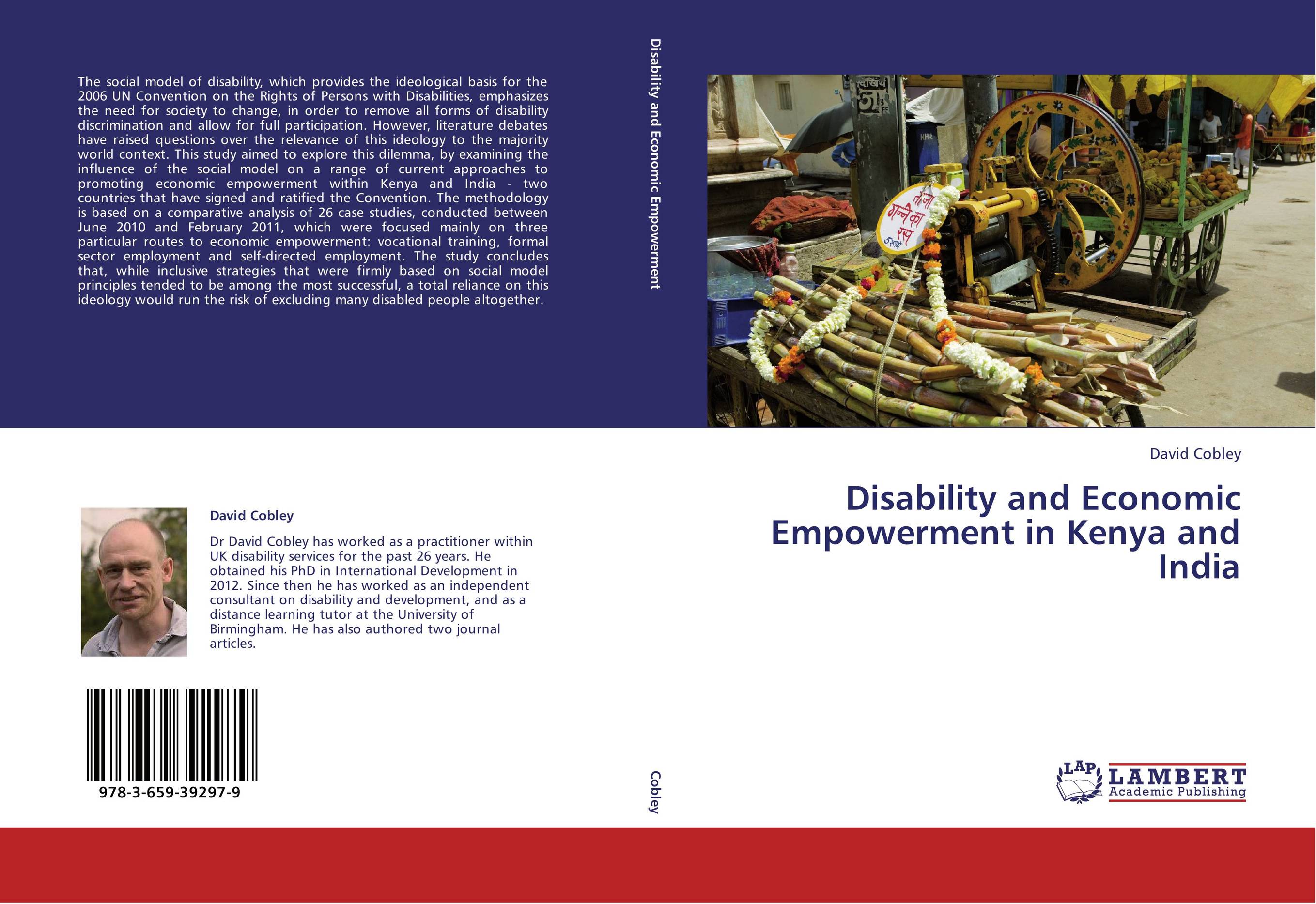| Поиск по каталогу |
|
(строгое соответствие)
|
- Профессиональная
- Научно-популярная
- Художественная
- Публицистика
- Детская
- Искусство
- Хобби, семья, дом
- Спорт
- Путеводители
- Блокноты, тетради, открытки
Disability and Economic Empowerment in Kenya and India.

В наличии
| Местонахождение: Алматы | Состояние экземпляра: новый |

Бумажная
версия
версия
Автор: David Cobley
ISBN: 9783659392979
Год издания: 2013
Формат книги: 60×90/16 (145×215 мм)
Количество страниц: 416
Издательство: LAP LAMBERT Academic Publishing
Цена: 68804 тг
Положить в корзину
| Способы доставки в город Алматы * комплектация (срок до отгрузки) не более 2 рабочих дней |
| Самовывоз из города Алматы (пункты самовывоза партнёра CDEK) |
| Курьерская доставка CDEK из города Москва |
| Доставка Почтой России из города Москва |
Аннотация: The social model of disability, which provides the ideological basis for the 2006 UN Convention on the Rights of Persons with Disabilities, emphasizes the need for society to change, in order to remove all forms of disability discrimination and allow for full participation. However, literature debates have raised questions over the relevance of this ideology to the majority world context. This study aimed to explore this dilemma, by examining the influence of the social model on a range of current approaches to promoting economic empowerment within Kenya and India - two countries that have signed and ratified the Convention. The methodology is based on a comparative analysis of 26 case studies, conducted between June 2010 and February 2011, which were focused mainly on three particular routes to economic empowerment: vocational training, formal sector employment and self-directed employment. The study concludes that, while inclusive strategies that were firmly based on social model principles tended to be among the most successful, a total reliance on this ideology would run the risk of excluding many disabled people altogether.
Ключевые слова: Disability, Livelihoods, Social Model, economic empowerment



